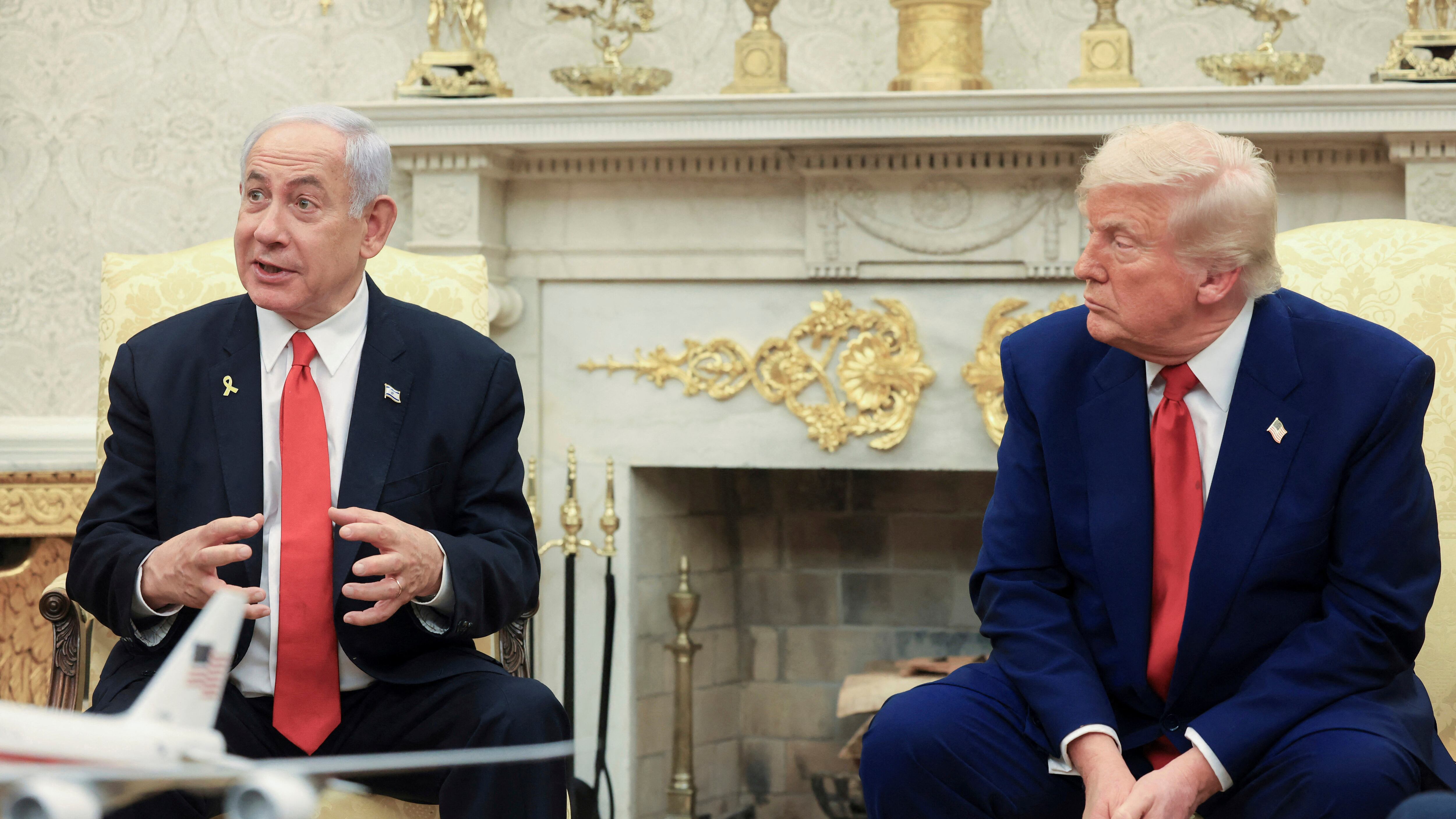TEL AVIV, Israel (AP) — Israeli Prime Minister Benjamin Netanyahu traveled to Washington this week for a hurried visit to the White House with a long list of concerns: Iran’s nuclear program, President Donald Trump’s tariffs, Turkey’s growing influence in Syria, and the 18-month war in Gaza.
PUBLICIDAD
Netanyahu seemed to leave Monday’s meeting empty-handed, a stark contrast to his triumphant visit two months ago. During a one-hour appearance in the Oval Office, Trump seemed to dismiss, contradict, or complicate each of Netanyahu’s political priorities.
PUBLICIDAD
On Tuesday, Netanyahu declared that the meeting was a success, describing it as a “very good visit” and stating that achievements were made on all fronts.
But privately, the Israeli delegation felt that it was a difficult meeting, according to a person familiar with the matter who spoke on condition of anonymity in accordance with regulations.
Nadav Eyal, a commentator for the Yediot Ahronot newspaper, expressed that Netanyahu “did not hear exactly what he wanted to hear, so he goes back home with very little,” although he added that the visit was friendly despite the disagreements.
Netanyahu’s second pilgrimage to Washington during Trump’s second term was organized at short notice and was presented as an attempt to address the new US tariff regime.
But it came at a crucial moment in Middle East geopolitics: Israel restarted the war in Gaza last month, ending a ceasefire backed by Trump, and tensions with Iran are escalating due to its nuclear program.
Monday’s meeting showed that, although Trump remains supportive of Israel, Netanyahu’s relationship with the president during his second term is more complicated and unpredictable than he might have expected.
Here’s a look at where Trump and Netanyahu seem to have diverged.
Military pressure on Iran
Netanyahu has long argued that military pressure is the best way to prevent Iran from obtaining nuclear weapons. Israel attacked Iran last year in the first direct conflict between the two countries, but did not target nuclear facilities, for which Israel would likely need military assistance from the United States in order to attack targets deeply buried underground.
Trump has suggested that the United States could take military action if Iran does not agree to negotiate. But his announcement on Monday that talks with Iran would take place this weekend contradicts Netanyahu’s warlike views.
Netanyahu gave a lukewarm endorsement, stating that both leaders agree that Iran cannot develop a nuclear weapon. He said he would favor a diplomatic agreement similar to the one with Libya in 2003 to destroy its nuclear facilities and allow unrestricted access to inspectors.
There was no tariff relief
One day before Trump unleashed global tariffs last week, Israel preemptively announced it would eliminate all tariffs on American products. But that didn’t prevent Israeli products from being hit with a 17% tariff by their largest trading partner.
Netanyahu was summoned to Washington ostensibly to present Israel’s case against the levy and although Trump repeatedly praised the Prime Minister, he did not seem to back down on Israel’s burden.
When asked if he could change his mind, he replied “maybe not.” He mentioned the billions of dollars that the United States gives to Israel in military assistance each year and an insurance policy for American interests in the region.
“We give Israel 4 billion dollars a year. That’s a lot,” Trump declared, suggesting that Israel was already receiving enough from the United States, and congratulated Netanyahu for that achievement.
The tension with Turkey
Since the fall of the Assad dynasty in Syria late last year, Israel and Turkey have been competing in the country for their separate interests there.
Israel fears that the new leadership in Syria, with an Islamist past, may pose a new threat along its border. Since then, it has taken control of a buffer zone in Syrian territory and has stated that it will remain there indefinitely until new security arrangements are made.
Turkey has emerged as a key player in Syria, which has raised concerns in Israel about the possibility of the Turkish army expanding its military presence within the country. Netanyahu stated on Tuesday that Turkish bases in Syria would be a “danger to Israel.”
Netanyahu sought to hear support from Trump regarding a country that Israel perceives as increasingly hostile. Instead, the President of the United States praised Recep Tayyip Erdogan for “taking control of Syria,” positioned himself as a potential mediator between the countries, and urged Netanyahu to be “reasonable” in his dealings with the country.
The end of the war in Gaza
Regarding the war in Gaza, Trump reiterated his plan to take over the strip and deport its Palestinian population, an idea that was once marginal in Israeli discourse and that has now found acceptance among mainstream politicians, including Netanyahu.
However, there were signs of differences.
Netanyahu broke the ceasefire last month and has been under great pressure from his allies in the government to continue the fight until Hamas is crushed. Trump, however, made it clear that he would like to see the hostages released and the war to end.
